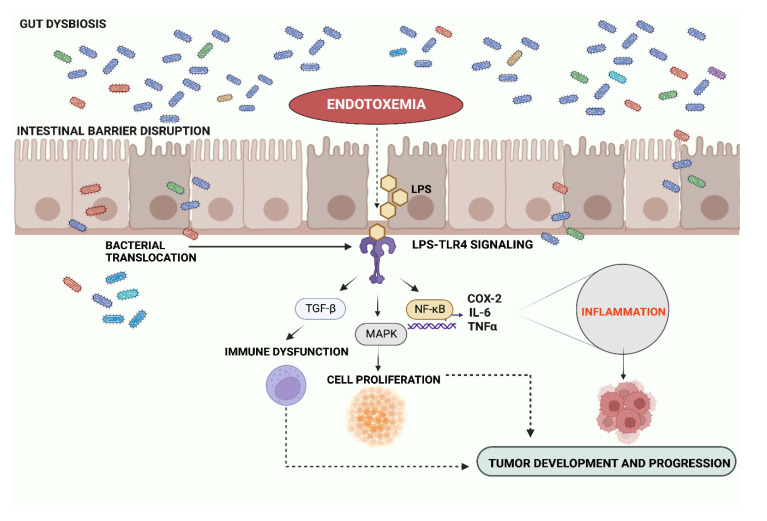Figure 1.
Pathways associated with endotoxemia and cancer risk. Gut dysbiosis and intestinal barrier impairment cause LPS translocation from gut lumen into the bloodstream, provoking endotoxemia and triggering systemic inflammation through LPS signaling in peripheral organs. During endotoxemia, LPS binding to TLR-4 activates several signaling pathways in targeted cells. The activation of the transcription factor NF-kB is associated with the production of pro-inflammatory cytokines that increase gut and systemic inflammation. Additionally LPS-TLR-4 signaling promotes the activation of cell cycle regulatory proteins and the secretion of cytokines that interfere with immune surveillance, sustaining a pro-oncogenic microenvironment in gastrointestinal cancers. Abbreviations: LPS: lipopolysaccharide; TGF-β: transforming growth factor beta; NF-kB: nuclear factor NF-kappa-B; MAPK: mitogen-activated protein kinase; TNF-α: tumor necrosis factor α; IL-6: interleukin 6; COX-2: cyclooxygenase-2. Created with BioRender.com.

